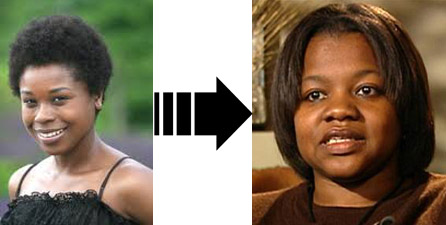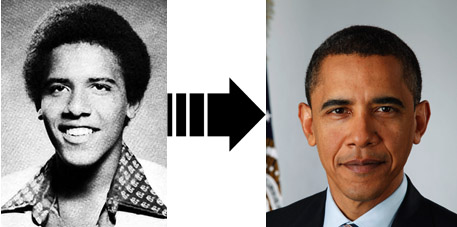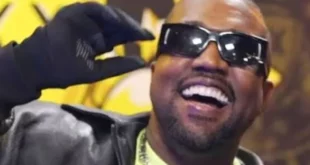The New Observer
August 11, 2013
 Imagine if, tomorrow morning, you woke up and found that every white woman you saw was wearing an Afro wig and had painted themselves black.
Imagine if, tomorrow morning, you woke up and found that every white woman you saw was wearing an Afro wig and had painted themselves black.
Not just one white woman, or even a few, or a “trend,” but EVERY white woman.
What would you think?
Would you think there was something strange going on?
Would you not wonder what would drive every white woman to want to hide their natural hair and deliberately adopt another race’s physical features?
You would, no doubt, think it very weird.
If every white woman you saw was “trying to be black,” you would correctly assume that there was some deep, dark, psychological process at work.
Perhaps some sort self-hatred, envy, desire to emulate . . . something.
Doubtless there would be TV shows about the phenomenon, about what psychological sea-change had occurred to make this happen . . .
Yet strangely enough, almost all black people today have gone to the most extreme measures to appear as white as possible—and no-one has dared to explain it on a racial psychological level – except, of course, to blame white people for “racism.”
Black hair straighteners, or “relaxers” as they are now deviously called, have flooded the world market. They are as common in Africa as they are amongst black populations in Europe and America.
Everywhere you look, African females suddenly have straight or “good” hair, as they call it.
The black comedian Chris Rock has even made a film about the phenomenon, called “Good Hair” which revealed that his community spends $5,000 per treatment to get “good” (i.e. straight) hair and that the industry is worth $9 billion a year in America alone.
You hardly see a “natural” haired African person any more.
Not only the females, but also the men.
 Black males, such as President Barack Obama, now keep their hair closely cropped to avoid being seen with “African” hair.
Black males, such as President Barack Obama, now keep their hair closely cropped to avoid being seen with “African” hair.
In addition, skin lighteners are all the rage, with a lighter skin tone being openly acknowledged as being “better” and associated with beauty and intelligence amongst black communities.
The Associated Press recently looked into why and how more and more people in Jamaica’s slums are “using skin bleaching cream to ‘lighten’ their complexions. Skin lightening is nothing new, especially in third world countries in Africa and also in India, which boasts the biggest marketplace for these dangerous creams.” According to the AP, “hardcore bleachers use illegal ointments smuggled into the Caribbean country that contain toxins like mercury, a metal that blocks production of melanin, which give skin its color, but can also be toxic.”
Hair relaxers are also dangerous chemicals which “work” by breaking the bonds which naturally strengthen hair. In other words, “straight” hair on Africans is chemically-damaged hair.
There are numerous side effects to hair relaxers, varying from extreme scalp burns to hair loss. One of the “unknown” side products (unknown to white people, at least) is something called “Temple Balm” which is applied to the temples of black females in an attempt to generate a full head of hair as part of the illusion.
White people are also mostly ignorant of the extent to which blacks wear wigs as part of their everyday wardrobe. In fact, most “long” hair that one sees on black females today is a wig or what is called a “hair extension” (fake or human hair bonded into the wearer’s real hair to create the illusion of long flowing locks).
This process actually requires glue and adhesive, another “side product” virtually unknown to white people.
The big questions remain:
(1) why do black people, en masse, want to look like white people? And
(2) what would people say if ALL white females wanted to have Afro hair?
 Daily Stormer The Most Censored Publication in History
Daily Stormer The Most Censored Publication in History


